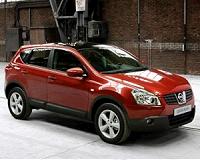 |
New Haven, CT (SPX) Sep 21, 2010 Navigating our way down the street is something most of us take for granted; we seem to recognize cars, other people, trees and lampposts instantaneously and without much thought. In fact, visually interpreting our environment as quickly as we do is an astonishing feat requiring an enormous number of computations-which is just one reason that coming up with a computer-driven system that can mimic the human brain in visually recognizing objects has proven so difficult. Now Eugenio Culurciello of Yale's School of Engineering and Applied Science has developed a supercomputer based on the human visual system that operates much more quickly and efficiently than ever before. Dubbed NeuFlow, the system takes its inspiration from the mammalian visual system, mimicking its neural network to quickly interpret the world around it. Culurciello presented the results Sept. 15 at the High Performance Embedded Computing (HPEC) workshop in Boston, Mass. The system uses complex vision algorithms developed by Yann LeCun at New York University to run large neural networks for synthetic vision applications. One idea-the one Culurciello and LeCun are focusing on, is a system that would allow cars to drive themselves. In order to be able to recognize the various objects encountered on the road-such as other cars, people, stoplights, sidewalks, not to mention the road itself-NeuFlow processes tens of megapixel images in real time. The system is also extremely efficient, simultaneously running more than 100 billion operations per second using only a few watts (that's less than the power a cell phone uses) to accomplish what it takes bench-top computers with multiple graphic processors more than 300 watts to achieve. "One of our first prototypes of this system is already capable of outperforming graphic processors on vision tasks," Culurciello said. Culurciello embedded the supercomputer on a single chip, making the system much smaller, yet more powerful and efficient, than full-scale computers. "The complete system is going to be no bigger than a wallet, so it could easily be embedded in cars and other places," Culurciello said. Beyond the autonomous car navigation, the system could be used to improve robot navigation into dangerous or difficult-to-reach locations, to provide 360-degree synthetic vision for soldiers in combat situations, or in assisted living situations where it could be used to monitor motion and call for help should an elderly person fall, for example. Other collaborators include Clement Farabet (Yale University and New York University), Berin Martini, Polina Akselrod, Selcuk Talay (Yale University) and Benoit Corda (New York University). Watch a video about the NeuFlow system.
Share This Article With Planet Earth
Related Links Yale Car Technology at SpaceMart.com
 Nissan considers bringing electric car technology to China
Nissan considers bringing electric car technology to ChinaBeijing (AFP) Sept 20, 2010 Japanese car giant Nissan Motor said Monday it is in talks with its Chinese partner Dongfeng Motor Group about sharing some of its cutting-edge electric car technology. The number three car maker in Japan was considering transferring its electric vehicle technology, such as lithium-ion battery know-how, to the companies' joint operations in China. The companies are looking to jointly pro ... read more |
|
| The content herein, unless otherwise known to be public domain, are Copyright 1995-2010 - SpaceDaily. AFP and UPI Wire Stories are copyright Agence France-Presse and United Press International. ESA Portal Reports are copyright European Space Agency. All NASA sourced material is public domain. Additional copyrights may apply in whole or part to other bona fide parties. Advertising does not imply endorsement,agreement or approval of any opinions, statements or information provided by SpaceDaily on any Web page published or hosted by SpaceDaily. Privacy Statement |